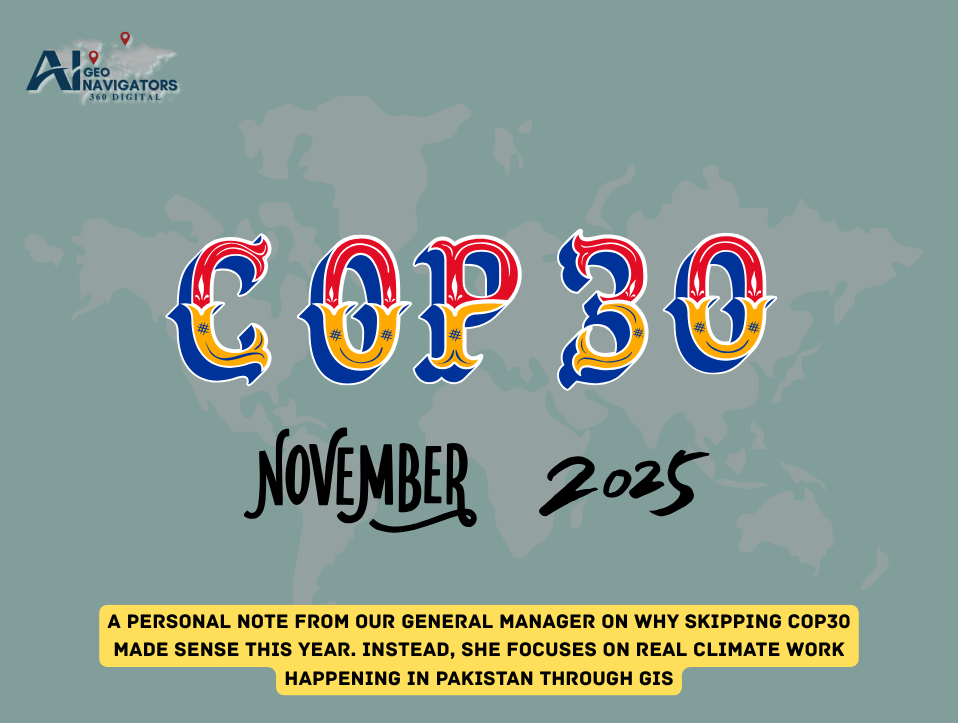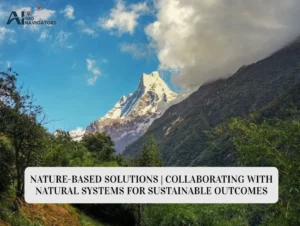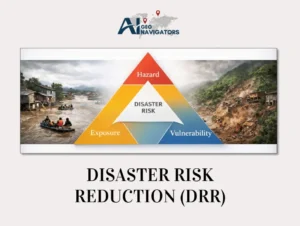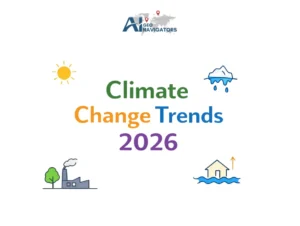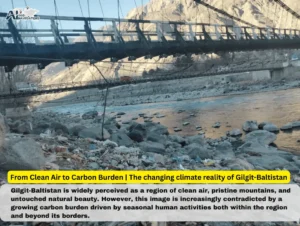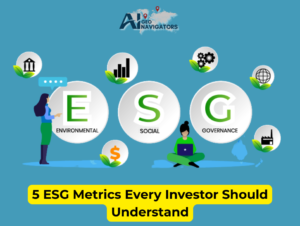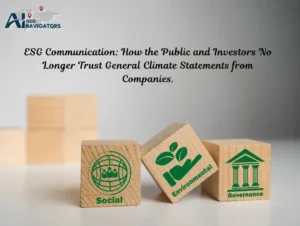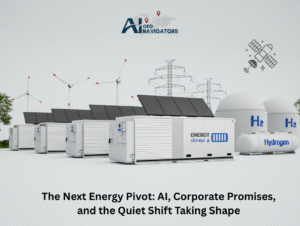As the world gathers in Belém, Brazil, for COP30, I’m thousands of kilometers away in Islamabad.
No rainforest humidity. No long security lines. Just quiet screens, maps flickering with satellite data, and the hum of machines running climate models.
That’s not an accident. It’s a choice.
I’ve been to these conferences before. They’re a blur of optimism, tension, and repetition negotiators reshaping language that’s already been reshaped. I could be there again.
speaking on panels, meeting familiar faces, waving the flag. But this year, I didn’t go.
Not out of frustration or fatigue. I stayed because something is different this time something real.
We’ve moved from the era of promises to the era of proof.
Table of Contents
ToggleWhy Belém Matters
Belém isn’t just a location; it’s a signifier. The act of hosting COP30 in the middle of the Amazon reminds us to put nature front and center, not on the sideline.
This year’s priorities are refreshingly straightforward:
- Implementing past pledges instead of creating new slogans.
- Transitioning national climate plans (NDCs) from words to action.
- Finding finance and technologies for developing states.
- Embracing forests, Indigenous leadership, and nature-based systems as pillars of solutions.
It’s less about declarations, and more about building. Less poetry, more engineering.
The focus has shifted, from “what should we do?” to “what is the speed of implementation.”
A Different Kind of Power Shift
The U.S. federal government’s lack of a presence at the negotiating table is concerning to some observers. Historically, Washington’s presence or lack thereof – has influenced the pace of progress.
But maybe not having that gravitational pull of U.S. politics will be beneficial this time. Without that presence, the floor opens up to a broader chorus: emerging economies, mayors, financiers, engineers, and entrepreneurs. The climate agenda used to be state-led and market-supported. Now it is market-led and state-enabled. That’s exactly why I stayed in Pakistan. Because, ultimately, the real action is no longer in negotiation halls; it is in the execution field.
The Case for Optimism
Without data, optimism is noise; we’re certainly seeing the optimism with the data to back it up. And the numbers speak for themselves: more than 90 percent of the new global power capacity installed last year came from renewables; solar now accounts for nearly all new growth in global electrification demand
In the next five years, we will add more renewable power than in the previous twenty years combined; and China is installing solar more quickly than anyone anticipated, and its emissions are starting to flatten; India hit its 50 percent non-fossil milestone ahead of schedule; and clean-energy investments are now outpacing fossil energy investments in terms of real capital spent.
These are not assumptions, they are facts. These are steel, silicon, and electrons – proof that the transition has shifted from ambition to acceleration.
What It Means Here at Home
Optimism is not imported from Pakistan’s perspective; it’s earned. We have experienced the cost of climate inaction; floods and droughts have made the case for adaptation more not less paramount, and that is where the transformation is taking place.
At AI Geo Navigators, we see it in practice everyday: satellites are tracking glacier melt, AI models are predicting flood zones, GIS platforms are mapping emissions and land-use change.
We turn data into actionable strategy for policymakers, developers, and industries that can no longer afford blind spots.
Climate resilience here is not theory, it is survival through information.
Our goal is to make geospatial intelligence a genuine means for national adaptation every pixel of information to enable smarter, faster and more responsible action.
The Slow Movers
The fossil industry is still fighting back. Ambiguity provides an opportunity to purchase additional time; delay provides opportunity to purchase additional profit.
But, the tide has inevitably shifted.
The question is no longer “Should we transition?” but “How quickly can we scale what we already know works?”
The momentum is no longer on the side of delay.
Where the Real Work Happens
Real progress now plays out in settings far from podiums at conferences:
- In laboratories where new ideas are turning into technology.
- In manufacturing facilities where turbines, batteries, and sensors are being assembled. In fields and forests where carbon is being captured and measured.
- In boardrooms where capital is now finally following sustainability instead of avoiding it.
That is where I prefer to work where words turn into systems and systems turn into outcomes.
Every dataset we publish, every model we run, and every risk map we deliver adds to the weight of the side of doing.
Rethinking COP’s Role
For developers, researchers, and financiers, COP, and the COP’s goalsetting process, is no longer the finish line or the start line.
It has become the scoreboard that measures aspirations but the actual match is being played in procurement plans, investment portfolios, and deployment schedules.
The questions have changed, however:
- Who can scale fastest?
- Who can finance most efficiently?
- Who can verify and monetize genuine impact?
- Who can define sustainability as a competitive advantage?
This is the space in which leadership will be determined this is the space where developers in Pakistan can emerge.
For Investors and Policymakers
The climate economy is not longer an act of charity; it is relegated to strategy. The greatest returns in the next decade will be reaped by those who act, and do not hesitate. I predict 2026-2027 will be the investment window that defines climate technology when pilot programs scale and commercialization commences.
Those who build in that time frame will control the narrative of the transition. Pakistan has the potenentials a talented youth bulge, offers huge renewable resources potential and nothing less than a data driven mentality. We just need to remain focused on delivery, not commentary.
A Closing Thought
Traveling in one direction is now clear.
In the past, the policy used to lead; markets followed.
And now, the others are following the lead the market is setting, and governments are working to follow.
That’s why I opted out of Belém.
The genuine climate work the kind you can measure is happening here, in the labs, datasets, and field initiatives of Pakistan.
Global progress is no longer a demonstration of consensus. It depends on collective implementation.
That is simply the focus we have at AI Geo Navigators we create maps with intelligence, we apply templates with precision and intentionality.
The promises are gone.
The proof is on the ground.

